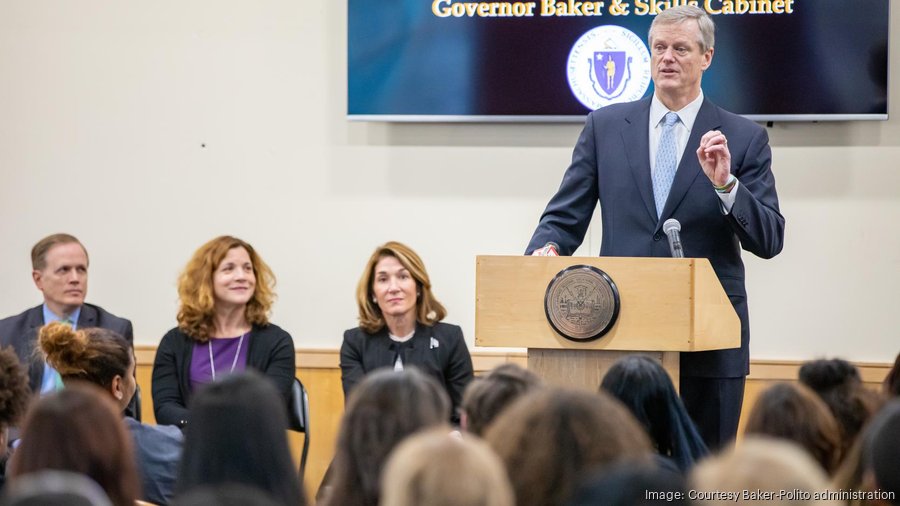The Baker administration plans to spend $68 million on job-training programs starting this fall, the state’s labor chief said in an interview Friday, as it pushes Legislature to put a much bigger pot of funding towards workforce development.
Gov. Charlie Baker has made it known for months that he wants to allocate $240 million of the state’s pool of American Rescue Plan Act funding to job training. Lawmakers on Beacon Hill are still weighing how to spend the ARPA money, with an initial decision expected in the coming weeks.
But in the meantime, the administration is moving ahead with job-training initiatives using the federal and state funding it's already secured — no insignificant amount, by historical standards.
Of the $68 million, the administration plans to dedicate $36 million to the Workforce Competitiveness Trust Fund and the Learn to Earn initiative, said Labor and Workforce Secretary Rosalin Acosta. Both are run through the quasi-public Commonwealth Corp. and geared toward both the unemployed and underemployed. They depend on partnerships with employers in a range of industries.
Another $22 million will go towards the Career Technical Initiative, a program launched in early 2020 meant to offer after-hours training at vocational schools to unemployed adults who want to learn skilled trades, such as in advanced manufacturing.
The final $10 million is slated for a new, yet-to-be-announced program.
The money comes from funding allocated to job-training programs under the state’s fiscal year 2022 budget, as well as the relatively small slice of ARPA funding that the Legislature has already given the administration to use at its discretion.
Administration officials urged the Legislature to free up the federal money for workforce development this past summer, citing the roughly 300,000 Massachusetts residents who fell off special federal Covid-19 unemployment benefits the week ending Sept. 4.
“My level of concern is absolutely undiminished,” Acosta said about the unemployed residents who lost the benefits last month. “We know there’s a whole bunch of people right now who aren’t going back to the same jobs they had before.”
Despite the high number of unemployed, many employers are having a hard time hiring workers. Massachusetts has more than 250,000 open jobs, according to Acosta.
“We have a real imbalance in the skills that we have available today in the commonwealth, versus the high-demand jobs and high-demand occupations that employers are looking for,” she said. “That is the challenge of the day. That is the hard work ahead of us.”




